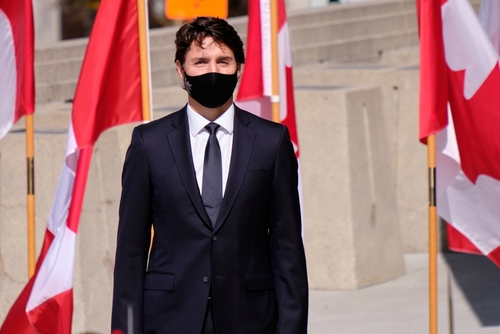The recent U.S.-Canada trade talks underscored the challenges both countries face amid escalating political tensions, but how will these unresolved issues impact the future of their vital partnership?
Trade Negotiations at Mar-a-Lago
High-ranking Canadian officials held critical talks with top aides to Donald Trump at his Florida estate, Mar-a-Lago. The discussions focused on key issues such as border security and potential tariffs. Canadian Finance Minister Dominic LeBlanc and Foreign Minister Mélanie Joly aimed to avert new trade barriers by proposing a robust border security plan. Despite an atmosphere described as “positive” and “productive” by Canadian representatives, no binding agreements materialized from these talks.
PM Trudeau tells reporters re: phone call with incoming U.S. President Donald Trump after threat to impose 25% tariffs on products from Canada & Mexico: "It was a good call. This is something that we can do, laying out the facts, moving forward in constructive ways."
#cdnpoli pic.twitter.com/GeJJK0Xrnx— CPAC (@CPAC_TV) November 26, 2024
Delegates highlighted border security improvements and the fight against fentanyl trafficking. However, they made little headway in convincing the Trump team to reconsider proposed tariffs, suggesting that Trump’s economic policies could remain unchanged. This meeting followed a dinner between Trump and Canadian Prime Minister Justin Trudeau earlier this month.
#Trump team offers no #guarantee on #tariff #threat after meeting with #Canada’s #Joly, #LeBlanc in #Florida 🗞️ Catch the day's latest news and updates ➠ https://t.co/zOk5dmY9BI pic.twitter.com/SCu5kovLEU
— Economic Times (@EconomicTimes) December 28, 2024
Lingering Tensions and the Threat of Tariffs
Since his election, Trump has taken a confrontational stance on trade with Canada, frequently leveraging social media to mock Canadian leadership and hint at integrating Canada as a U.S. state. These hostile overtures culminate in the ever-looming threat of a 25% tariff on Canadian goods, driven by Trump’s ambition to rectify a significant trade deficit. At the same time, Canadian ministers strive to highlight their border security funding efforts, but the current political climate strains amicable resolutions.
“The Ministers intend to focus on Canada’s efforts to combat fentanyl trafficking and illegal migration and the measures outlined in Canada’s Border Plan, as well as the negative impacts that the imposition of 25% tariffs on Canadian goods would have on Canada and the United States.” Finance Ministry Spokesperson.
Amidst these tensions, data shows minimal fentanyl seizure at the northern U.S. border, pointing to potential overreach in Trump’s security-focused tariff rationale. Yet, the possible economic implications of tariffs—especially with Canada being a major U.S. trading partner—remain a pressing concern.
Canadian Political Instability and Economic Policy
Complicating the trade discussions further is a domestic political challenge within Canada. Deputy Prime Minister Chrystia Freeland’s unexpected resignation brought uncertainty to Trudeau’s leadership. Freeland criticized Trudeau’s policies as mere “political gimmicks,” raising concerns about the administration’s stability. Dominion LeBlanc’s assumption as Finance Minister and mounting opposition pressure for Trudeau’s potential resignation loom as uncertainties.
“Both Ministers outlined the measures in Canada’s Border Plan and reiterated the shared commitment to strengthen border security as well as combat the harm caused by fentanyl to save Canadian and American lives.” Jean-Sébastien Comeau.
As the Liberal Party grapples with internal demands for change, opposition parties gear up to challenge the government’s trade and economic strategies when Parliament resumes. These internal conflicts and Trump’s territorial ambitions and trade impositions could significantly shape future North American trade dynamics.
Sources:
https://www.nytimes.com/2024/12/27/world/canada/canada-ministers-trump-border-tariffs.html

